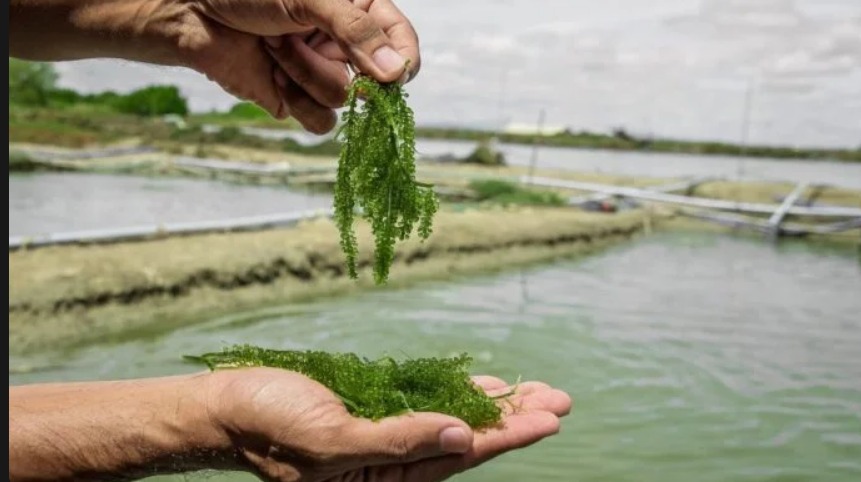On the island of Sainte-Marie, located off the east coast of Madagascar, a green revolution is underway. Seaweed farming is gradually establishing itself as a major economic activity. With the establishment of several marine farms in recent years, this practice is experiencing rapid growth, generating significant income for local communities while offering innovative ecological solutions.
Seaweed Farming: A New Economic Windfall for Sainte-Marie
Seaweed cultivation on Sainte-Marie has expanded rapidly. In less than five years, three farms have been established, now employing over 2,000 locals and generating more than a million dollars annually. It provides a stable income to populations previously below the poverty line. Farms like Nosy Boraha SeaWeed, led by Sébastien Jan, create jobs, offer technical and material support, and ensure fair purchasing prices for seaweed production.
A Promising Environmental Solution
Beyond its economic impact, seaweed farming plays a key role in regenerating marine ecosystems by creating new habitats for fish and reducing pressure on fish resources. This practice helps restore previously depleted sandy areas and is seen as a solution for ocean deacidification. Ecologist Isabel Urbina Barreto from the Locéan laboratory notes that studies are ongoing to assess the impact of seaweed on coral growth and marine ecosystem balance.
Seaweed: An Underutilized Resource with Infinite Potential
According to Vincent Doumeizel, UN ocean advisor, seaweed is one of the planet’s least explored and underutilized resources, with the potential to revolutionize humanity’s future by feeding both people and animals while contributing to marine biodiversity restoration. Rich in essential nutrients like omega-3, zinc, and protein, seaweed offers exceptional health benefits. In Madagascar, particularly in Sainte-Marie, this new blue revolution is beginning to show promising results.



